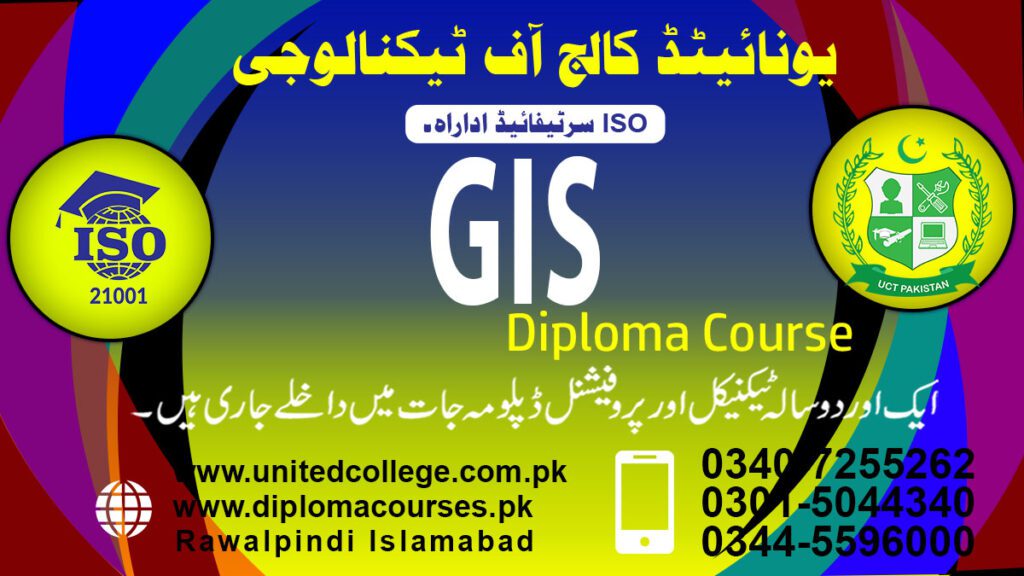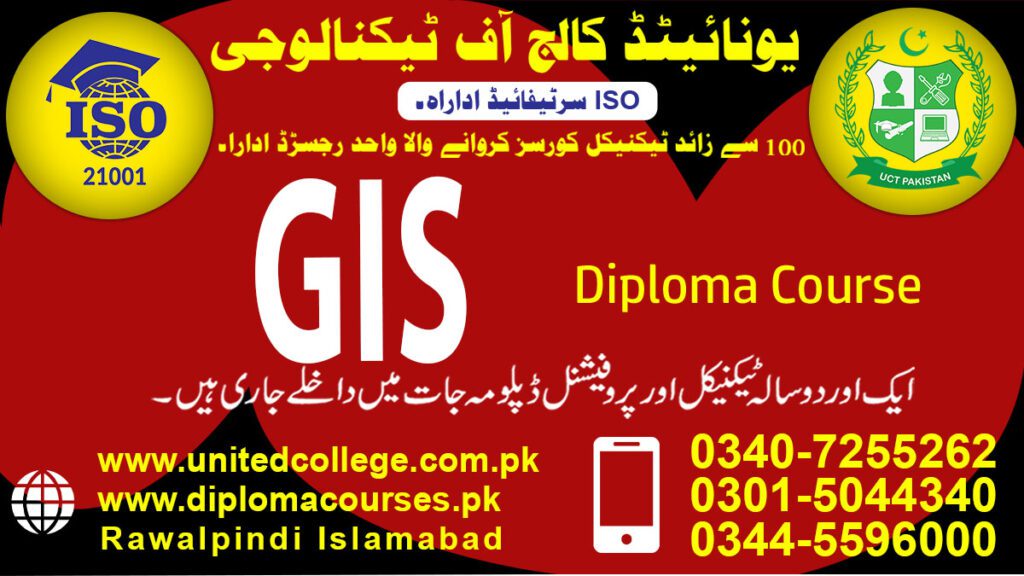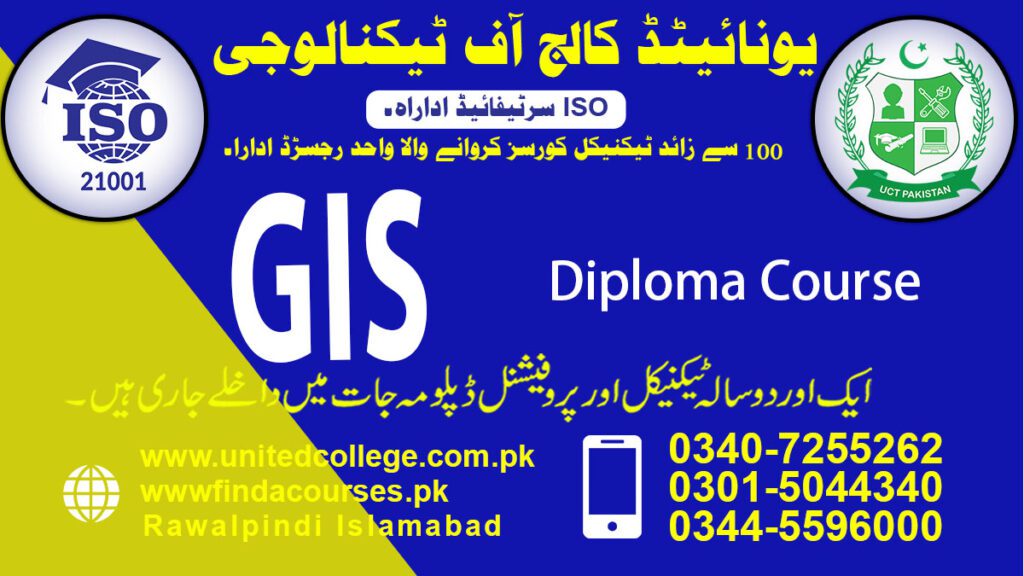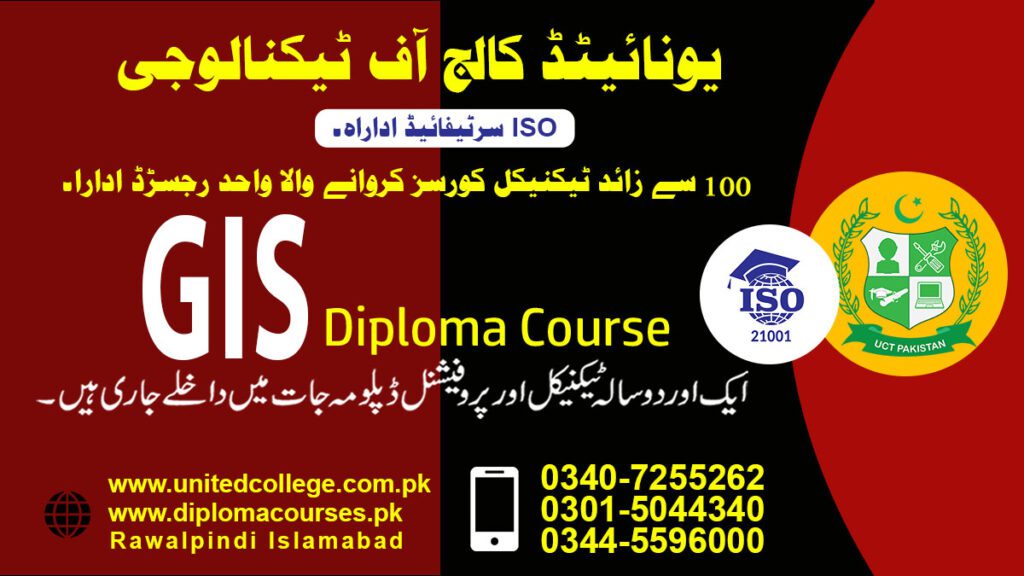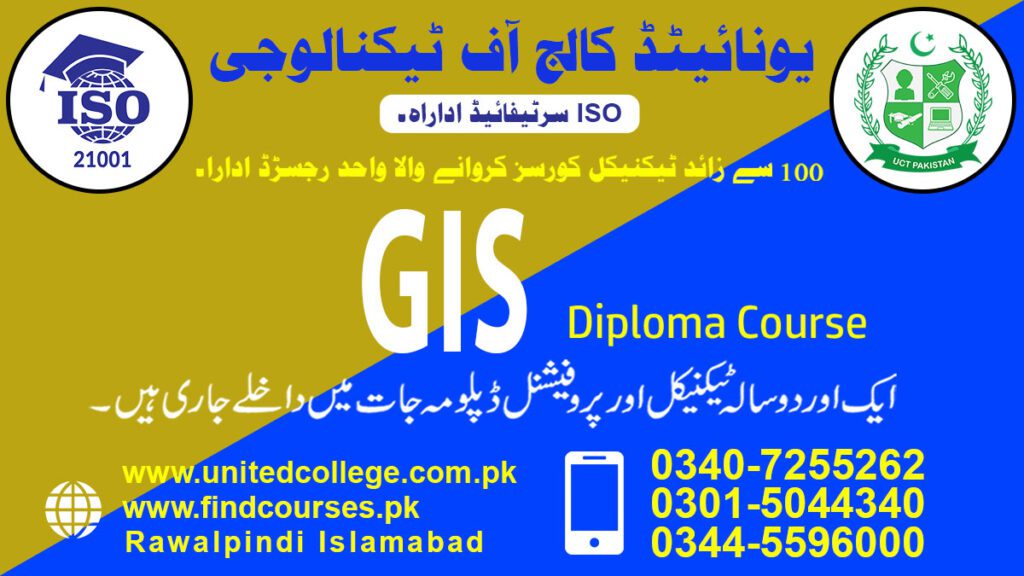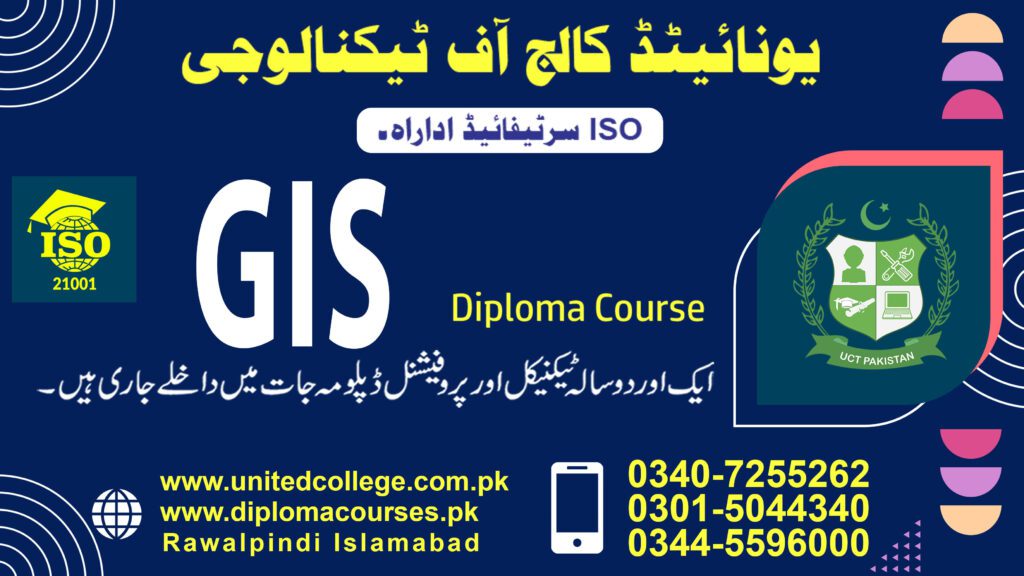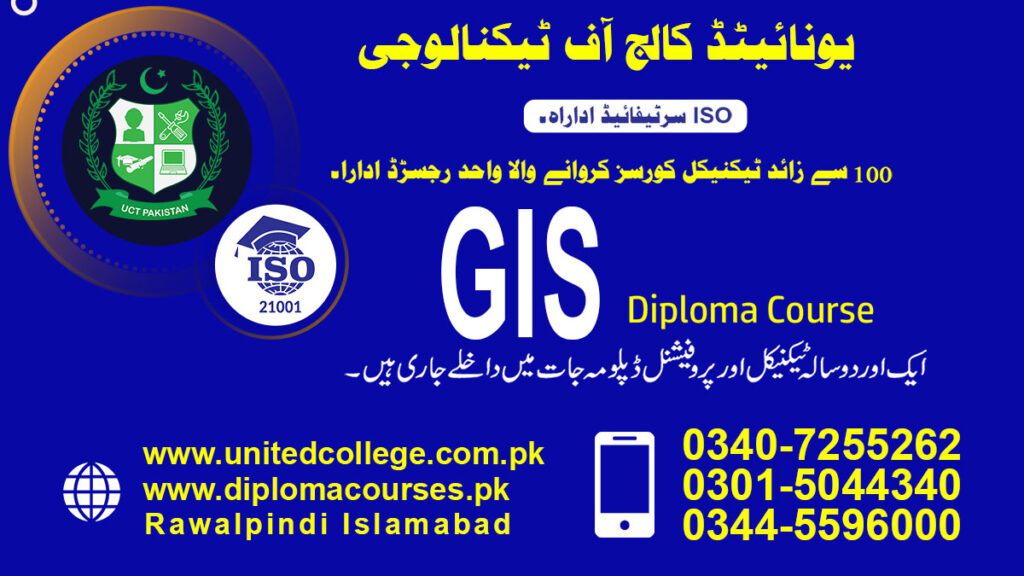GIS COURSE IN RAWALPINDI ISLAMABAD PAKISTAN

GIS Course in Rawalpindi Islamabad Pakistan 0344-5596000
Introduction:
GIS stands for Geographic Information System. It is a field that combines geography, cartography, and data analysis to capture, store, manipulate, analyze, and present spatial and geographic data. GIS is widely used in various industries such as urban planning, environmental management, natural resource management, transportation, telecommunications, and many others.
GIS Courses:
GIS courses are designed to provide students with a comprehensive understanding of GIS concepts, tools, and techniques. These courses can be found at different educational levels, including undergraduate and graduate programs, as well as professional development courses. Here are some key topics covered in GIS courses:
-
Fundamentals of GIS: This includes an introduction to GIS, its applications, and basic concepts like spatial data, coordinate systems, map projections, and data models.
-
GIS Software: Students are introduced to popular GIS software packages such as ArcGIS, QGIS, or other industry-specific software. They learn how to use these tools to create, edit, analyze, and visualize spatial data.
-
Data Acquisition and Integration: This involves collecting and acquiring spatial data from various sources such as satellite imagery, GPS devices, or existing datasets. Students learn techniques for data integration and database management.
-
Spatial Analysis: Students explore different spatial analysis techniques, including proximity analysis, overlay analysis, network analysis, and terrain analysis. They learn how to perform these analyses to derive meaningful insights from spatial data.
-
Cartography and Map Design: This covers the principles of map design, including symbolization, labeling, and layout. Students learn how to create visually appealing and effective maps for different purposes.
-
Remote Sensing: This topic focuses on the use of satellite or aerial imagery to gather information about the Earth’s surface. Students learn how to interpret remote sensing data and extract valuable information using image processing techniques.
-
Spatial Data Visualization: Students learn various methods to visualize spatial data, including thematic mapping, 3D visualization, and interactive web mapping. They gain skills in creating compelling visual representations of geographic information.
-
GIS Project Management: This aspect of GIS courses covers project planning, data organization, quality assurance, and project implementation. Students learn how to manage GIS projects effectively, including data collection, analysis, and presentation.
Career Opportunities:
GIS skills are in high demand across a range of industries. Graduates of GIS courses can pursue careers as GIS analysts, cartographers, spatial analysts, remote sensing specialists, urban planners, environmental consultants, and more. They can work in government agencies, environmental organizations, consulting firms, research institutions, or private companies.
GIS courses provide a solid foundation for individuals interested in working with geospatial data and exploring the dynamic field of GIS. By gaining proficiency in GIS tools and techniques, students can unlock exciting career opportunities and contribute to solving real-world spatial challenges.
Course Fee: 35000
Daily Class: 2 Hours
Course Duration: Two Months
Morning / Evening
Call For Registration: 0344-5596000 / 0333-9014677 / 0340-7255262


